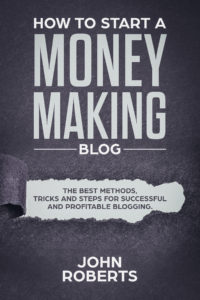How to Learn SEO in the Upcoming Year
There are tons of information about SEO on the web. Different sources provide us with common facts and try to introduce something new for readers alongside. It seems like every day tends to bring another portion of SEO news.
SEO nerds know everything about search engine optimization tendencies. But what about those people who have just started the path of discovering SEO? What sources could be helpful for newbies?
I am going to give you the answers to these questions in this post. So, you will get to know where to start your SEO journey after you read it.
Free or Paid SEO Education?
Unfortunately, it was unreal to study SEO somewhere at the educational institutions before. This science has been explored with the help of cut-and-try method. It has taken years to identify and organize major SEO directions.
What do we have nowadays?
There are numbers of SEO courses, lessons, and tutorials on the internet. It’s rather overwhelming. You don’t know which course is worth your time. What’s more important, the courses from well-known SEO experts cost thousands of dollars. The price is too high for newbies.
Why are these courses so expensive? Are they better than the free ones?
Paid courses can save your time significantly because they cover only the most important aspects of SEO. You won’t need to search for additional information. A single course contains everything you need. Yes, this option is far better to the free one.
Which paid course to choose?
I advise you to buy courses prepared by SEO practitioners. The reason is obvious – these experts make money doing SEO. And this is the key factor in this case.
Nevertheless, don’t get upset if you don’t have money to buy the courses. This post is aimed at teaching you SEO for free.
A Few Contradictions to Be Mentioned
SEO industry changes rapidly. The changes bring lots of contradictions that give rise to doubts. Here are some of the reasons for this:
- Since SEO changes headily and you should verify the information using different SEO sources regularly.
- It is impossible to predict changes in Google’s algorithms. They are secret.
How to deal with these contradictions?
- Study SEO by practicing it yourself
- Explore different SEO forums and communities
- Analyze what different SEO experts say
- Don’t use all suggested SEO pieces of advice you will find at once
“White, Grey or Black” Hat – What Color to Choose?

First things first, I would like to start with types of SEO.
There are three types of SEO:
- “White Hat SEO” that abides all the rules and guidelines stipulated by Google
- “Grey Hat SEO” is a bit farther from these Google’s rules
- “Black Hat SEO” doesn’t follow these guidelines from Google at all
If you want to avoid being penalized by Google, you should be an advocate of “White Hat SEO” (especially, if you are new to it) Other types of SEO could be used by your competitors to outrank you. Thus, don’t be surprised by this.
Your Starting Point Is…
Your starting point should be the very basics of search engine optimization. Even if you are an experienced SEO practitioner, this tutorial will be a kind reminder to refresh your knowledge.
Don’t rush to consume everything – start small
If you think that you will have to spend days and nights on the internet searching for helpful guides on SEO basics, you can calm down. There is no need for this. Here are fantastic comprehensive guides I would like you to start with:
- Google Search Optimization Starter Guide – the guide created by Google containing multiple SEO aspects that you should know
- The Beginner’s Guide To SEO – outstanding recommendations regarding SEO from Moz
- How Search Works – A former Head of WebSpam at Google Matt Cutts recorded the video where he discusses Google’s approach to search + web-crawling and Googlebot indexing
Competitor research
SEO strategy involves one crucial aspect called competitor research. Why is it essential for your SEO?
Competitor research helps you see what strategies, tactics and decisions you competitors use. As a result, you can use these tricks to your benefit. What’s more important, it helps you:
- See what your competitors avoid doing
- Learn from your competitors’ mistakes
A few guides on competitor research you should take into account:
- How to Carry out a Detailed Competitive Analysis (With Only 2 Tools) – find out how to do competitive analysis with the help of Ahrefs and SimilarWeb
- SEO Competitor Analysis – check out the guide by Nathan Gotch with the list of factors you should pay attention to while doing competitive analysis
Keyword research
Another crucial aspect of any SEO strategy is keyword research. Keyword research helps you identify what inquiries your target audience uses searching on Google. The given information will help you improve optimization of your website. Doing keyword research you should pay attention to a search inquiry intent. And here are three basic types of intent:
- Informational (to find any information)
- Transactional (inquiries on transaction operations)
- Navigational (to find a website you need)
When you know an inquiry intent for sure, you will be able to succeed in coming up with correct keyword ideas.
And a couple of guides that would be excellent fit for exploring keyword research from scratch:
- How to Do Keyword Research in 2017 – a comprehensive guide on keyword research from Ahrefs
- Keyword Research for SEO: The Definite Guide – a list of actionable pieces of advice from Brian Dean
Content audit
Why do you need to do content audit? Because your site must contain indexable content. Content audit keeps this aspect under control. These two guides will give you nice insights concerning content audit:
- How to Do a Content Audit (Updated for 2017) – Everett Sizemore shares his tricks on content audit
- The Step-By-Step Guide to Conducting a Content Audit – take your time to read the guide written by Eric Siu
On-Page SEO
The first thing I want to do is give you a definition of the on-page SEO. Moz gives one of the most accurate explanations out there:
“On-page SEO is the practice of optimizing individual web pages in order to rank higher and earn more relevant traffic in search engines. On-page refers to both the content and HTML source code of a page that can be optimized”
On-page SEO is a must part of overall SEO strategy. Here are three posts that you should explore:
- On Page SEO: A (2M Keyword) Data Driven Analysis – one of the largest data-driven on-page SEO survey from Ahrefs
- On-Page Ranking Factors – the understanding of on-page SEO elements is crucial; Moz will clarify everything for you in this post
- On-Page SEO: Anatomy of a Perfect Optimized Page (2017 Update) – a list of actionable on-page SEO pieces of advice from Brian Dean
Off-Page SEO
If we talk about improving your website’s position in SERP, thus it is all about off-page optimization. What is the aim of off-page optimization of a website?
Off-page SEO helps to increase website traffic, get more links, and exposure. As far as you understood, link-building is a significant part of the off-page optimization strategy.
Here are a few guides on the off-page SEO you should review:
- Off-Page SEO: What Is It and How to Crack It – Joshua Hardwick reviews the off-page SEO subject from different angles and shares some actionable strategies on it
- The Noob Friendly Guide to Link Building – an authoritative guide on link-building with the references to different sources
- The Complete Guide to Outreach: 52 Curated Sources – off-page SEO strategy includes email outreach that tends to boost your link-building process
A Bit of Technical SEO
What is Technical SEO? Technical SEO includes indexing, site speed, and mobile optimization of a site. Yes, ‘technical’ matters have always been a pain in the butt for website owners. Some people prefer to keep away from the technical side of SEO.
However, there is nothing to be afraid of when it comes to Technical SEO. Let me give you some tips that will help you:
- Ask Google the things you don’t know
- If you can’t find the information you need on Google, try to search throughout SEO forums, communities, and social media groups
- Hire an expert in Technical SEO
Guides to get familiar with:
- Ultimate Guide: How to Make a Website in 2017 – an actionable guide created in 2017
- Learn HTML and CSS – two languages that are used for the web. This guide will help you understand the basics, thus you will be able to use these languages in terms of SEO
- Step-by-Step “Technical SEO” Checklist – Ryan Stewart gives exposure of Technical SEO from his perspective
- The Technical Audit Checklist Made For Human Beings – read this post, and you will find out how to complete technical audit checklist
Tools for SEO
It goes without saying that any SEO campaign can’t be carried out properly without specific SEO tools. There is a bunch of different SEO tools that offer all necessary services for running a successful optimization for your website.But which ones are worth using?
Likely, I would like to suggest you the most useful tools for your SEO:
- Google Analytics – A must tool for tracking and reporting data collected from your site
- Pingdom Site Speed Tool – If a website is slow, it won’t have many visitors (who might turn into customers.) This tool helps make a site faster
- Screaming Frog – When we talk about analyzing of key onsite elements, this tool is everything you need
- Ahrefs Tool Suit – keyword research, backlink analysis, content explorer – these and a few other tools that you will find in the Ahrefs toolkit
Analytics and reporting
Your SEO process must be kept under control. Thus, Google Search Console and Google Analytics will help you with this. Here are two guides that show you how to use these tools correctly.
Conversion Rate Optimization
Good SEO increases the chances of your website to gain more traffic. But does it matter if traffic can’t be converted into sales? Nope. That’s when CRO comes into a play. Let me give you the CRO definition. Moz provides an all-embracing one:
“Conversion rate optimization (CRO) is the systematic process of increasing the percentage of website visitors who take a desired action — be that filling out a form, becoming customers, or otherwise. The CRO process involves understanding how users move through your site, what actions they take, and what’s stopping them from completing your goals.”
I advise you to read this piece of content on CRO:
To End up
Search Engine Optimization and everything in between is an entirely undiscovered sphere where any newbie can be deluded. You might need a guide who would guide you through the journey. And you have already found it in the form of this post.
I’ve pointed the way to move and suggested the sources to use. May your SEO journey be convenient and effective.
If you found this post useful, feel free to share it on your social media channels.
Don’t forget to comment on it as well.
Author’s bio: Sergey Aliokhin is a Marketing Manager at Ahrefs. Apart from working at Ahrefs he likes spending his time with family, studying martial arts and plucking fat bass guitar strings.




IAGMAR is leading digital marketing company in Hyderabad, India. We are the reason behind the success of many start-ups. Our Digital Marketing Services covers seo services, online advertising, social media marketing and email marketing